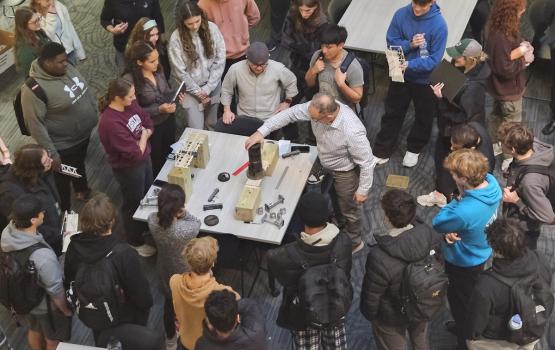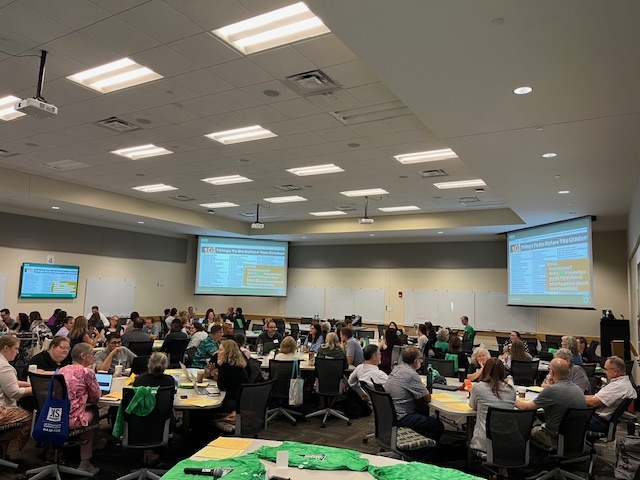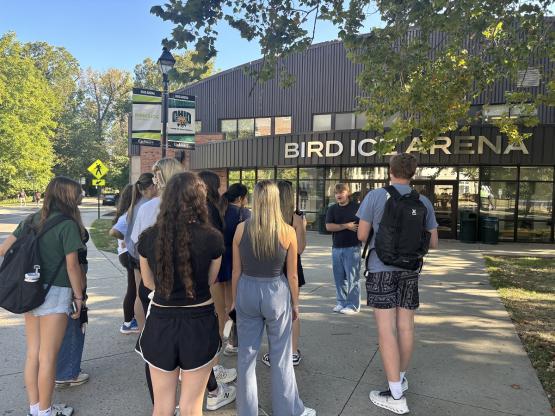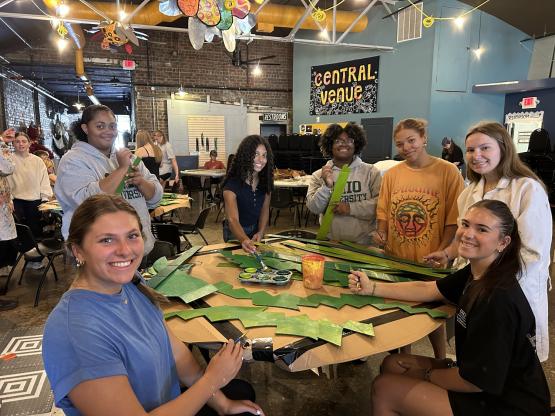

Learning communities launched for first-year students
Over 4,400 first-year Bobcats are taking part in 244 Learning Community Seminars this fall, where they are building connections, exploring different areas of academics and experiencing a better transition to OHIO.
September 16, 2025
Share:
Over 4,400 students are in one of 244 sections of UC 1900 Learning Community Seminar this fall. Every major is funneled into a learning community. For most, the seminar class is one of the classes they take with the rest of their learning community. The seminar class supports students engaging with their academic program/college. The Instructor and Learning Community Leader (LCL) work to build a community of connection that supports student transition. The LCL is a returning student that supports the facilitation of class, hosts study sessions, one-on-one meetings, and plans out-of-class activities. The Instructor is likely a faculty or staff member from the specific program or college, they provide insight into the academic focus for the program. Learning Communities and First-Year Seminar classes are both identified as High Impact Practices, supporting the retention and graduation of students.
Here are some insights into what is going on thus far this semester:
- Dr. Linda Rice, instructor for an English Learning Community: “I had students do self-introductions by sending two pictures to my LCL, who put all the pics together into a PowerPoint. Then students, as their pics came up, shared what they wanted to about themselves. It warmed my heart in that by week two when these were shared, the students had already included pictures of themselves with others in the English Learning Community, showing they are already forging new friendships.”
- Gary Bernstein, director of the Master of Sports Administration (MSA) Program, had several of the MSA students conduct a panel exploring careers in the field for his Sports Administration community.
- Dr. Shalando Jones shared that their marketing section students were engaged on the conversation around AI, which covered the ethical use in classes as well as preparing them to use AI in the workforce. Lastly, students had fun creating AI-generated images of themselves as future CEOs and sharing them in the discussion board.
- Michelle Davidson, director of Academic Affiliation Agreements in the College of Health Sciences and Professions, has two pre-nursing sections. She shared that the students “really like to hear the LCL's experience with the nursing program. Both LCLs have explained how things work and what order things happen and I think it has put a lot of people at ease.”
While the Learning Community Leaders serve a significant role in the Learning Communities, they are also students who we strive to support and provide development opportunities.
- James Cox is a second-year student studying political science. They are an LCL with a Pre-Law community. "Being an LCL has taught me be to be myself because that's what people respond to best," Cox said. "Passion, authenticity, and compassion are all essential to being an LCL in order to get the best results from students, and I know that this lesson will help me in my future career.”
- Indigo Chirayath, a junior in strategic leadership and management, said the LCL role "has helped me strengthen my communication, leadership, and planning skills — all of which are valuable for my future career." They also shared that they have “met two international students from Germany who are interested in a sales program that I’m really passionate about. It’s been exciting to connect over shared interests."
Last year over 95% of students agreed that the class helped them to positively transition to OHIO. Over 96% of students agreed that it increased their knowledge of campus resources and organizations and 96% also agreed that it provided information regarding academic expectations. We are thankful to the 244 LCLs and 199 Instructors that support the students through the fall semester. A shout out to the LCLs, supervisors, and team members who make it all happen in the Learning Communities Program office.


